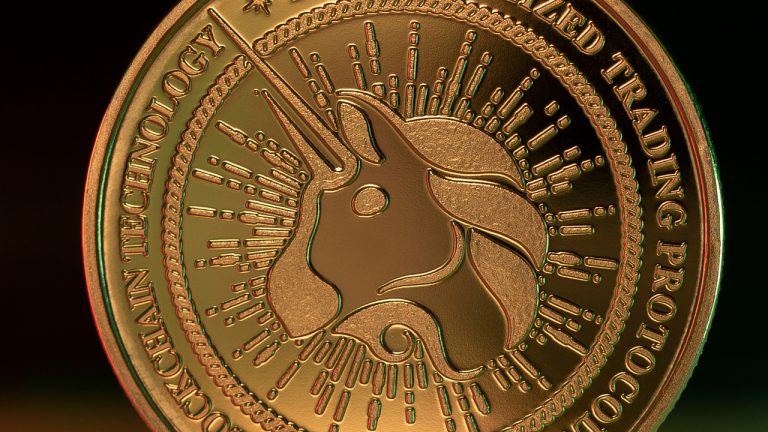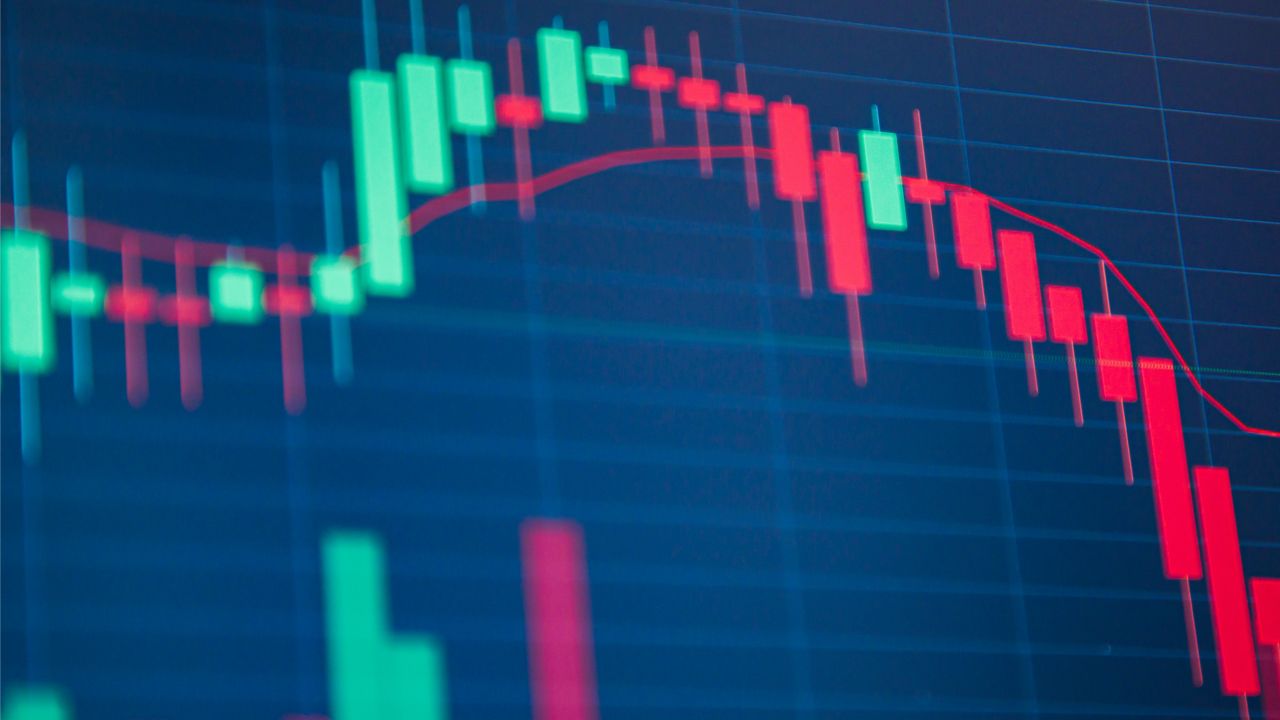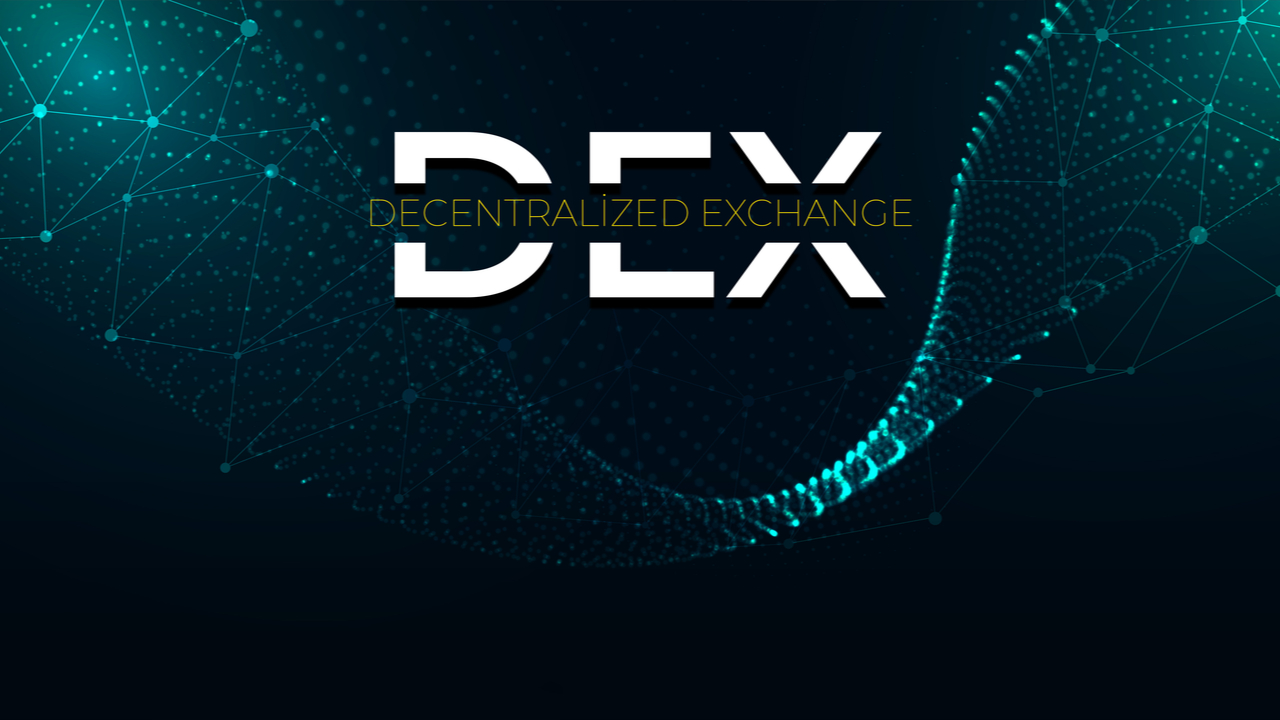 While the collapse of the crypto exchange FTX and its affiliate Alameda Research is thought to have left many crypto players, including market makers, in the worst possible position, according to Andrei Grachev, managing partner at DWF Labs, this incident may have helped to “flush out companies that were not sustainable enough to operate during […]
While the collapse of the crypto exchange FTX and its affiliate Alameda Research is thought to have left many crypto players, including market makers, in the worst possible position, according to Andrei Grachev, managing partner at DWF Labs, this incident may have helped to “flush out companies that were not sustainable enough to operate during […] Less than a week ago, Brett Harrison, the former president of FTX US, published a 49-part Twitter thread describing his side of the story when he worked for the disgraced co-founder of FTX, Sam Bankman-Fried (SBF). On Friday, Jan. 20, 2023, Harrison revealed that his new firm, Architect, has raised $5 million from investors such […]
Less than a week ago, Brett Harrison, the former president of FTX US, published a 49-part Twitter thread describing his side of the story when he worked for the disgraced co-founder of FTX, Sam Bankman-Fried (SBF). On Friday, Jan. 20, 2023, Harrison revealed that his new firm, Architect, has raised $5 million from investors such […]
A popular crypto analyst thinks decentralized exchanges (DEXs) will take over crypto in the wake of the recent FTX collapse that spurred fears about centralized exchange (CEX) transparency. Despite his own prediction, pseudonymous Coin Bureau host Guy warns his 2.17 million YouTube subscribers that it will take “some time” time before the DEX experience can […]
The post Coin Bureau Host Predicts Centralized Crypto Exchanges Will Be Displaced in Coming Years appeared first on The Daily Hodl.
 Uniswap Labs, the firm behind the Uniswap decentralized exchange protocol, announced on Thursday that it raised $165 million in a Series B funding round. According to one report, the capital raise, which sees Uniswap Labs’ valuation rise to $1.66 billion, is the largest by any crypto firm in 2022. Uniswap Completes $165M Capital Raise, Decentralized […]
Uniswap Labs, the firm behind the Uniswap decentralized exchange protocol, announced on Thursday that it raised $165 million in a Series B funding round. According to one report, the capital raise, which sees Uniswap Labs’ valuation rise to $1.66 billion, is the largest by any crypto firm in 2022. Uniswap Completes $165M Capital Raise, Decentralized […]
Splitting the transaction into multiple smaller transactions, periodic auction matching, and adjusting the low slippage are various ways to avoid front-running.
Decentralized exchanges (DEXs) nip in the bud several issues concerning their centralized counterparts such as concentration of liquidity in the hands of a few players, compromise of funds in case of a security breach, closed control structure and more. One issue, however, that has refused to subside is front-running. Unscrupulous players are still finding ways to defraud unsuspecting traders.
If you have received less than expected when placing a trade on a DEX, there is a pretty good chance of you getting hit by front runners. These bad actors exploit the automated market maker (AMM) model to make profits at the expense of unsuspecting traders.
This article will explain the attack vector and help you understand the basic concept of front-running in crypto trading, the potential consequences and how to prevent crypto front-running.
The term “front-running” refers to the process when someone uses technology or market advantage to get prior knowledge of upcoming transactions. This allows the bad actors to take advantage of the forthcoming price movement and make economic gains at the cost of those who had introduced these transactions. Front-running happens via manipulations of gas prices or timestamps, also known as slow matching.
On centralized as well as decentralized exchanges, front-running is a frequent activity. The objective of a front runner is to buy a chunk of tokens at a low price and later sell them at a higher price while simultaneously exiting the position. When executed precisely, it brings in risk-free profits for the traders committing it.
Related: DeFi vs. CeFi: Comparing decentralized to centralized finance
Trading of stocks and assets based on insider knowledge to take advantage of the price movement has been a well-known tactic. Though illegal and unethical, brokers have been engaging in it. The tactic closely resembles insider trading with just a minor difference that the executioner works for the client’s brokerage and not the client’s business.
Frontrunning is done using crypto front-running bots functioning on a millisecond-scale timeframe. Before a person blinks, they can read a string of transactions, calculate the optimum transaction size and gas price, configure the transactions and run them.

The core of a front-running bot functions by listening for the pending transaction on the blockchain. Interacting with the blockchain using an interactive script, the bot buys before the buyer and sells right after it. The bot analyzes the trends of the crypto and executes transactions to make a profit.
When a trade occurs, the system broadcasts it to the blockchain, requiring miners to verify the transaction. However, in any blockchain of significance, the stream of incoming transactions is more than the capacity of the subsequent block. Unmined transactions are left in a pending transaction pool called a mempool.
Blockchain mempools are transparent, a feature that the front runners exploit. Getting insight into the mood of the traders, they are able to predict the upcoming price movements and place their own orders accordingly. They set a higher gas price on their transactions to encourage picking their transactions before the pending ones, thus front-running the unsuspecting traders.
There is no single solution to solve issues regarding front running on all platforms. Rather, various anti-front-running approaches need to be followed on different projects, depending on the scenarios.
Front runners are fond of low liquidity pools, as there is less chance of competition as well as disruption of their transaction by a large order that unexpectedly alters the pool weighting. Executing your trades in large liquidity pools makes it less likely to get hit by frontrunning.
Does the question “How do I avoid slippage” perennially pricks you? What you can do is set a maximum slippage tolerance in most decentralized exchanges. In other words, you can fix the maximum deviation from the expected return. An example will help you understand the scenario better.

Suppose you place an order on a DEX and expect a return of 500 Tether (USDT) for it. If you set your slippage to 1% of your order, then you won’t be receiving less than 495 USDT. However, if higher slippage tolerance is greater, there will be more deviation.
So, the formula is simple: Keep maximum slippage low, around 0.5%-2%, to fend off front runners. If you are going to place a large order, keep your slippage at the lower keel. Front runners want you to keep slippage high, so better to do just the opposite of it.
Front runners are delighted to see slow transactions because it gives them more time to devise an order for riding your trade and making profits. Underpaying on gas makes your transactions queue up for longer, providing front runners more time to formulate their strategy and damage your interests.
Overpaying on gas motivates miners to validate your transaction faster, minimizing your odds of becoming the target of a bad actor. For this purpose, you might set the gas price to higher than average or simply use the fast gas option on your wallet. If you are placing a large value order, it becomes even more important to try and complete the transactions with alacrity.
To make a profit, front runners have to meet some minimum thresholds. They have to pay the gas fees twice, on entering and exiting the market, and also recover the amount paid as the trading fee. Their profits begin only after they get back their expenses.
Currently, prominent Ethereum-based automated market makers such as Uniswap, Balancer and SushiSwap pay a gas fee of $25 per transaction. As they need two transactions to execute frontrunning, they are likely to spend $50 to complete the trade. It also means if your trade is raking in less than $50 profit, there are negligible odds of you becoming the target of the frontrunners.
When you enter a low-value trade, you practically make it an unprofitable venture for frontrunners. Most of the time, trading with amounts under $1,000 is safe.
A publicly-hosted order book is the first thing to draw front runners. If you manage to find a taker, you will be able to fill a given order and will be able to keep away from public markets and, subsequently, front-running. When you find a taker and negotiate a price successfully, a trustless on-chain exchange gets executed.
DEXs can take care of several design points to make front-running difficult to execute:
Front runners look for slow matching speed to place their orders before the execution. A DEX can ensure fast matching to leave little room for front runners to put their process to motion. Super quick block time will effectively make the front runners unable to react. For most frontrunners, who are not so technically inclined, this should be enough.
In the case of a centralized matching engine, it is hard to establish that the exchange itself is not involved in front running. Decentralized matching engines, on the other hand, allow anyone running a full node to view the matching in real time. They can match the transaction in the latest block manually with the current order book.
Periodic auction matching adds an extra layer of security from the front running. It adds a non-deterministic layer making it improbable for anyone to know the next execution price unless they are aware of the matching logic, the incoming orders for the next block and the trade price and the current order book from the last match.
Some traders wonder about the impact of the full release of Ethereum 2.0 later in 2023, merging the mainnet with Beacon Chain and introducing a proof-of-stake (PoS) consensus mechanism. Validators who are supposed to process transactions in an epoch will be intimated of their positions beforehand.
An epoch is a defined span of time in a blockchain network. This time frame is used to describe when certain events in a blockchain network will take place, such as when incentives will be distributed or when a new group of validators will be allocated to validate transactions.
Related: Ethereum upgrades: A Beginner’s Guide to Eth2
In this scenario, it will be harder for front runners to find profitable trades in a blockchain teeming with transactions, but not impossible. Many frontrunners out there are technically proficient, so you can’t just rule out the possibility. DEXs can cover design points like quick matching, decentralized match engine and periodic auction matching to minimize the odds of front-running.
 Decentralized exchange (dex) volumes have been dropping since December 2021 according to current statistics. However, last month dex trade volumes spiked 2.37% higher than the volumes recorded in February. Despite the brief spike and with only eight days left in April, metrics show this month’s dex volumes will likely be much lower than in March. […]
Decentralized exchange (dex) volumes have been dropping since December 2021 according to current statistics. However, last month dex trade volumes spiked 2.37% higher than the volumes recorded in February. Despite the brief spike and with only eight days left in April, metrics show this month’s dex volumes will likely be much lower than in March. […] Decentralized exchange (dex) volumes have become very prominent this year and some dex applications have been dealing with volumes that are sizable to large centralized crypto exchanges. During the last seven days, Ethereum-based dex platforms processed $21 billion with Uniswap capturing 71% of all the Ethereum-based dex applications today. Statistics from a report published by […]
Decentralized exchange (dex) volumes have become very prominent this year and some dex applications have been dealing with volumes that are sizable to large centralized crypto exchanges. During the last seven days, Ethereum-based dex platforms processed $21 billion with Uniswap capturing 71% of all the Ethereum-based dex applications today. Statistics from a report published by […] Five years ago, there was a large quantity of digital currencies and blockchains, but there were very few trading platforms that dealt with decentralized exchange. Since the boom of decentralized finance (defi), there’s now a myriad of decentralized exchange (dex) platforms that allow people to swap funds in a private, non-custodial manner. These days the […]
Five years ago, there was a large quantity of digital currencies and blockchains, but there were very few trading platforms that dealt with decentralized exchange. Since the boom of decentralized finance (defi), there’s now a myriad of decentralized exchange (dex) platforms that allow people to swap funds in a private, non-custodial manner. These days the […] Dydx, a decentralized exchange, has seen its trading volumes explode in the last few days, surpassing other recognized decentralized exchanges like Uniswap and Pancakeswap. Some analysts have suggested this might be the result of the latest Chinese cryptocurrency ban causing China-based users to move their trading activities to these platforms. Dydx Bursts With Activity Dydx, […]
Dydx, a decentralized exchange, has seen its trading volumes explode in the last few days, surpassing other recognized decentralized exchanges like Uniswap and Pancakeswap. Some analysts have suggested this might be the result of the latest Chinese cryptocurrency ban causing China-based users to move their trading activities to these platforms. Dydx Bursts With Activity Dydx, […] At the U.S. Senate Banking Committee hearing Tuesday, Senator Elizabeth Warren called on the chairman of the Securities and Exchange Commission (SEC), Gary Gensler, to increase oversight of cryptocurrency. She brought up several problems she associates with cryptocurrency that could hurt small investors. Senator Elizabeth Warren Says ‘There’s a Whole List of Problems With Crypto’ […]
At the U.S. Senate Banking Committee hearing Tuesday, Senator Elizabeth Warren called on the chairman of the Securities and Exchange Commission (SEC), Gary Gensler, to increase oversight of cryptocurrency. She brought up several problems she associates with cryptocurrency that could hurt small investors. Senator Elizabeth Warren Says ‘There’s a Whole List of Problems With Crypto’ […]